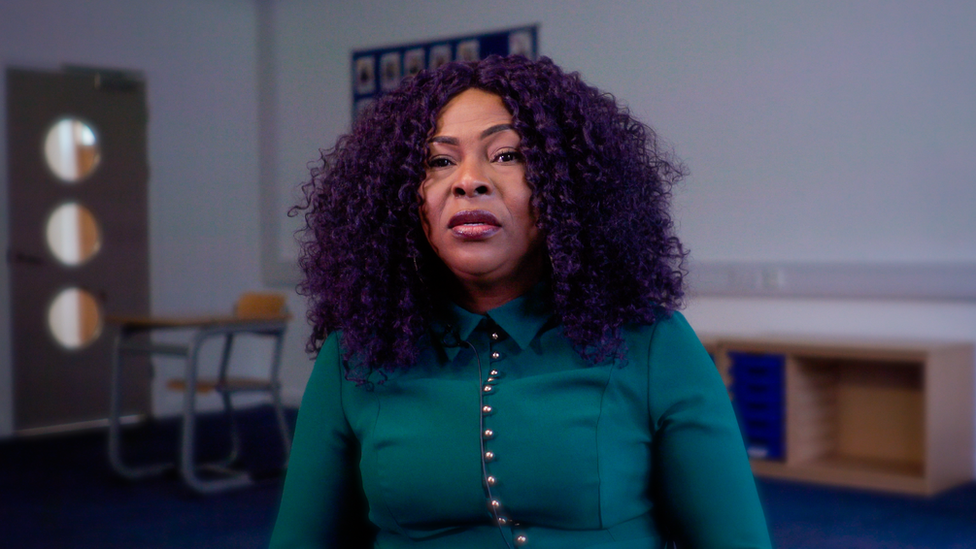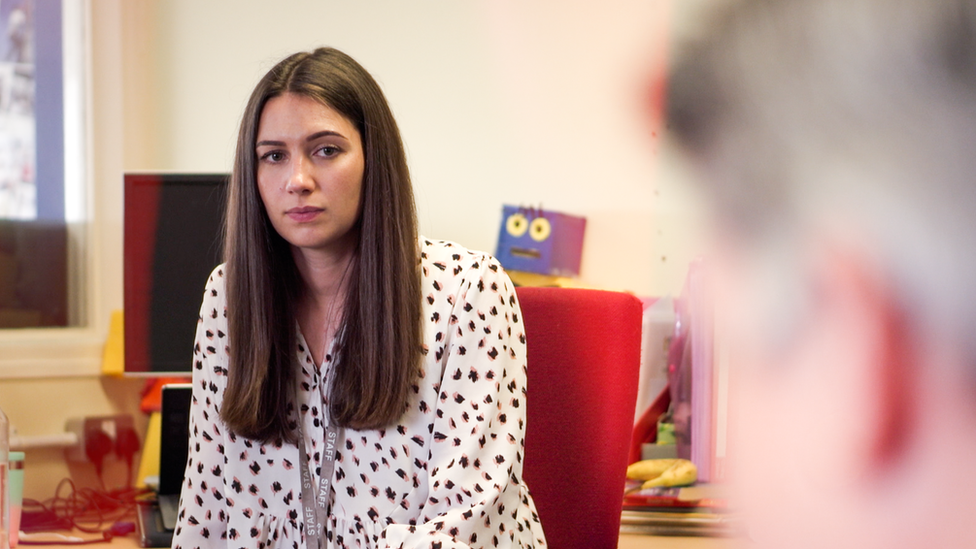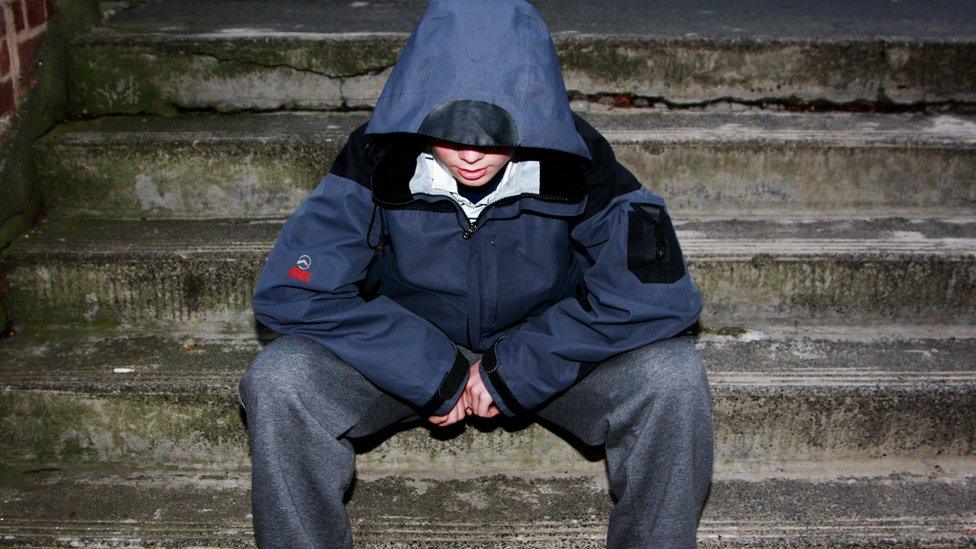Why social workers are being embedded in schools
- Published

The project involved more than 150 educational institutes in England, including in mainstream secondary schools
Many families feel they are often near crisis point before they receive any help from social services, but a project is trying to address this by embedding social workers into educational settings.
The trial, involving more than 150 educational institutions across England, is exploring whether this method of identifying pupils in need of help can reduce the number of referrals of children into care.
Barizoge Neenwi has been working at Commerce House, in Wood Green in north London, an alternative provision unit for students who require specialist support.
"I always check in with every one of them," the Haringey Council social worker says. "And some do come to cry with me due to their emotional issues and that's when we identify what's going on."
By building relationships with children and their families, Ms Neenwi says she can spot issues early and prevent them from escalating. She looks for "warning signs" something might be wrong when pupils come into school late, tired or stressed - or even with bruising or other signs of injury.
She originally did not tell students she was a social worker because of negative views they might have had about the profession.
"When I started, I was very mindful of their perception," she says. "One of our students came to me and said: 'Miss, I heard you are a social worker. You're so cool.' And then they're able to trust and express what they're going through."

Barizoge Neenwi works at Commerce House, a unit for students who require specialist support
One family said Ms Neenwi had made a huge difference at home. Julie (not her real name) is a single mother to a boy with learning difficulties and a violence disorder.
Julie said: "In the past I've had a bad experience. They didn't provide me with enough support. But Bari will go out of her way to make sure he's OK.
"She can bring him out of himself. He had a disconnect with teachers and I think he felt misunderstood. When Bari came, she just understood the dynamic of my family.
"She's gone above and beyond and I wouldn't have got this level [of help] if it were just from a social worker in the community."
Gerry Robinson, executive head teacher at Haringey Learning Partnership, said: "If every school had this, it would transform the way we're able to safeguard our young people. Parents, carers and young people see she's genuinely here to support and it takes away a lot of fear attached to a social worker becoming involved with a family."

Faye Monteath is building relationships with pupils at Canons High School
Canons High School in Harrow is the new base for social worker Faye Monteath. Alongside her statutory work, looking after families assigned to her by the council, she communicates with different groups such as pastoral teams, councillors and nurses to co-ordinate support for students.
"The relationship that you have with children and families is a lot stronger because we're here and available every single day," she says. "It's helpful for parents to have a direct contact with someone at school who they can talk to and I can check in with.
"I think they see me not necessarily as the school social worker, but as a member of the school team who's there to support them."
Jill Aitken, the school's deputy head teacher, said: "Having Faye embedded in the school means we can react to issues quickly that affect whole families, whereas in the past it had to get to crisis point before there was any help. She's made a huge difference to so many families."
'Safe space'
Michael Sanders is the chief executive of What Works for Children's Social Care, an organisation funded by the Department for Education (DfE). He explained: "If you are in a school where you have a more supportive, more pastoral environment - where perhaps you can avoid the need for a social worker to be a big part of your life by having them be a small part of your life - maybe that makes it easier for you to study, to get better grades."
The DfE spent £16.3m on the project after reports of domestic abuse increased during the Covid-19 pandemic, with some children also experiencing exposure to drug and alcohol misuse.
Education Secretary Gavin Williamson said: "Too many children are growing up at risk of abuse, neglect and exploitation. These are the most vulnerable in society, and the ones that most need our help. For these children, schools offer a safe space to get support, develop resilience and fulfil their potential. We must take all the steps we can to protect these children."
The research project continues until next year, and What Works for Children's Social Care will be investigating its impact.
In the meantime, Barizoge Neenwi and Faye Monteath hope to continue making a difference to pupils' lives.
- Published12 March 2021

- Published29 July 2010
- Published27 January 2016
